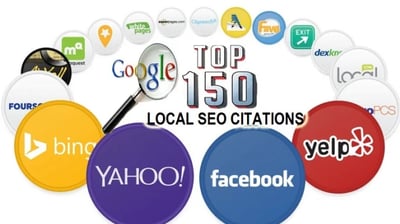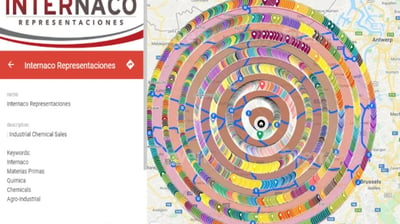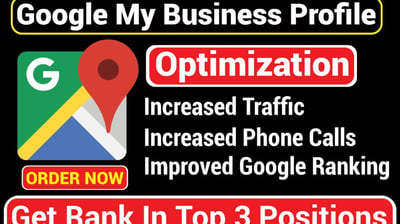Off-Page SEO
Utilize Off-Page strategies to help improve your site’s rankings and overall traffic
Search Engine Optimization (SEO) tips from top-tier talent
SEO techniques for English content can sometimes differ in emphasis compared to strategies for other languages due to cultural nuances, search behavior, and competition.
Social media is a fantastic indirect ally for SEO. By amplifying your content's reach and encouraging genuine engagement, it lays the groundwork for better rankings.
Console (GSC) and Bing Webmaster Tools (BWT) are both useful for tracking how your website performs in search, but they focus on different search engines.
Optimizing your YouTube content with effective SEO strategies, like keyword research, engaging thumbnails, and encouraging viewer interaction, can significantly boost your video rankings and visibility.
Begin with titles full of important words that match what people look for. Write descriptions that use these words naturally, and add timestamps to help people navigate easily.
Check which keywords your competitors are targeting. This will provide insights into what’s working in your industry and help you identify gaps or opportunities.
Generally, you can expect to see some initial results within 3 to 6 months, but achieving significant progress may take 6 to 12 months or longer.
Frequently asked questions
What is SEO?
Search Engine Optimization (SEO) refers to a set of strategies aimed at improving a website’s visibility in search engine results pages (SERPs). The goal is to increase organic traffic by enhancing both the relevance and authority of the site. SEO encompasses on-page techniques, such as keyword optimization, content structuring, and metadata improvements, as well as off-page strategies, like acquiring high-quality backlinks. Modern SEO prioritizes high-value content and aligns with user intent, moving away from outdated practices like keyword stuffing.
How can SEO help my business?
Search Engine Optimization (SEO) offers numerous benefits for businesses looking to enhance their online presence. One of the primary advantages is increased brand awareness, as improved visibility in search engine results helps establish brand recognition and equity. By boosting your website’s presence, SEO also drives more organic traffic, attracting potential customers without the need for paid ads. Additionally, effective SEO enhances the user experience by improving site structure and navigation, making it easier for visitors to find what they need and encouraging longer engagement. High search rankings also contribute to greater credibility and trust, as users often associate top-listed websites with authority and reliability. For businesses targeting specific geographic areas, local SEO ensures that your offerings are visible to nearby customers precisely when they’re searching for relevant products or services. Moreover, SEO typically delivers a strong return on investment (ROI) compared to other digital marketing strategies. With tools like Google Analytics, businesses can track performance, measure results, and continuously refine their SEO efforts for better outcomes over time.
How exactly does SEO work?
SEO involves several important parts that help your website show up better in search engines. First, it's about knowing who your audience is and making content that matches what they're looking for. Using the right keywords is also important so search engines understand what your site is about. There are two main parts of SEO: on-page SEO, which means improving your website’s content and structure, and off-page SEO, which includes getting links from other websites to build your site’s trust and authority. It’s also important to fix technical issues like slow website speed, using the right page codes, having a clear site structure, avoiding repeated content, setting up the site for different languages, and solving server problems. All these things work together to help your site rank higher in search results.
Why are keywords important?
Keywords and search phrases are a key part of SEO because they help search engines like Google understand what your content is about. When you use the right keywords, search engines can show your content to the right people who are looking for that information. That’s why keyword research is so important for both SEO and content marketing. If you’re not sure how to do it, you can hire an SEO expert to help you find the best keywords for your business.
Why is technical SEO important?
It's important to write good content for people to read, but you also need to make sure search engines can find and understand it. That’s where technical SEO comes in. When search engines can easily read and add your pages to their index, each page becomes a chance to show up in search results and bring more visitors to your site. Technical SEO covers many things, so it's a good idea to regularly check your website with an SEO audit to make sure everything is working well and fully optimized for search engines.
What’s the difference between on-page and off-page SEO?
On-page SEO (also called on-site SEO) and off-page SEO (or off-site SEO) are both important parts of a good SEO strategy. On-page SEO means making improvements directly on your website, like using the right keywords in your content, writing good quality pages, and fixing technical issues. Off-page SEO is about building your website’s reputation by getting other websites to link to yours, growing your online authority, and getting people to share your content on social media. To get the best results, you need to use both on-page and off-page SEO together.
Guides related to Search Engine Optimization (SEO)
Connect
Get in touch for your web solutions today.
Support
Follow
© 2025. All rights reserved.
support@aleenaseopro.xyz
551-966-0788
service areas
USA SEO Services












